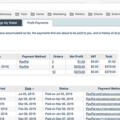The health of this housing market: Comparing 2024 data to 2011
Today’s
housing
market
suffers
from
affordability
issues
due
to
mortgage
rates
in
the
7s
and
high
home
prices.
People
are
quick
to
panic
over
any
part
of
the
housing
market
that
looks
stressed,
fearing
we’ll
see
2008
levels
of
destruction
all
over
again.
But
while
home
sales
are
trending
at
the
lowest
levels
ever
when
adjusting
to
the
workforce,
we
have
some
very
positive
housing
data
lines
in
2024
compared
to
the
stressed
housing
markets
of
past
years.
Let’s
look
specifically
at
the
current
market
data
compared
to
2011.
Why
choose
2011?
That
was
the
first
year
we
were
truly
out
of
the
Great
Recession
and
the
last
year
home
prices
fell
in
the
U.S.
There
are
some
critical
differences
between
the
housing
market
today
and
what
we
saw
then,
which
provide
good
insight
into
the
health
of
this
market.
Underwater
homes
One
of
the
most
significant
changes
in
the
housing
market
since
the
housing
crash
has
been
the
drastic
reduction
in
underwater
homes.
The
housing
bubble
crash
years
of
2008-2011
saw
a
surge
in
foreclosures
due
to
the
lack
of
selling
equity
and
this
also
profoundly
impacted
housing
demand.
Today
that
situation
has
improved
significantly.
Consider:
In
the
fourth
quarter
of
2010,
23.1%
of
homes
were
underwater.
In
2024,
that
number
has
plummeted
to
1.8%,
the
lowest
level
ever.
Chart
below
represents
Q1
2024
data.
So
not
only
do
we
have
a
very
limited
number
of
homes
underwater,
but
homeowners
also
have
a
lot
of
selling
equity.
The
reason
this
is
so
important
is
that
when
we
get
another
job
loss
recession,
many
households
in
America
will
have
a
cushion
to
sell
their
homes
and
not
go
into
foreclosure
at
all.
The
second
positive
factor
is
that
homeowners
who
haven’t
lost
their
jobs
can
sell
their
homes
and
use
that
equity
for
a
down
payment
for
another
house
or
even
pay
cash
for
the
next
purchase.
Days
on
market
One
of
the
problems
with
having
so
many
foreclosures
and
a
lack
of
demand
back
in
2011
is
that
it
took
over
100
days
to
close
a
transaction
—
this
is
a
sign
of
an
unhealthy
housing
market.
The
National
Association
of
Realtors
tracks
the
days
on
market,
and
unlike
2011,
when
it
took
over
three
months,
the
most
recent
existing
home
sales
report
shows
only
24
days
on
market
this
year.
In
2011,
we
had
over
3
million
active
listings
to
start
the
year
and
today
the
NAR
total
active
listings
data
is
running
at
1,128,000.
Traditionally,
I’d
like
to
see
the
days
on
the
market
be
between
30-45
days
year-round.
But
since
we
have
such
low
active
listings
today,
even
with
2024
being
another
year
of
low
home
sales,
the
days
on
the
market
are
still
under
30
days,
which
means
homes
that
are
priced
right
are
selling
quickly.
New
listings
The
most
significant
and
glaring
difference
between
2011
and
2024
is
the
weekly
new
listings
data
for
the
peak
season.
It’s
probably
the
second
most
enormous
gap
ever;
only
2023
would
be
lower
than
this
year.
Last
week
in
2011,
396,955
homes
hit
the
market
without
a
contract.
For
the
same
week
this
year,
the
number
was
70,606
new
listings.
2023
had
the
lowest
new
listings
data
and
2024
looks
to
be
the
second-lowest
new
listings
data
ever.
The
background
to
this
difference
in
new
listings
is
important.
We
had
a
massive
credit
bust
starting
in
2005,
which
continued
from
2006
to
2008
—
all
before
the
job
loss
recession
began
in
2008.
As
you
can
see
in
the
chart
below,
credit
broke
years
before
the
Great
Recession,
which
is
why
we
had
so
many
new
listings
at
that
time.
That
is
not
the
case
now
—
I
drew
these
black
lines
to
make
my
point.
Of
course,
it
wasn’t
just
2011
that
had
a
burst
of
new
listings:
from
2009-2012,
the
new
listings
data
was
running
at
250,000
to
400,000
per
week,
whereas
the
last
four
years,
we
have
been
running
at
30,000
to
90,000
per
week,
roughly.
New
listings
data
for
last
week
over
the
years:
-
2009:
281,734 -
2010:
345,146 -
2011:
396,955 -
2012:
318,041
What
a
difference
a
cycle
makes!
Now,
I
could
write
about
16
different
variables
that
make
2024
much
different
than
2011,
but
let’s
keep
it
simple.
This
housing
market
is
challenging
in
some
ways,
but
we’re
not
headed
for
another
2008.






